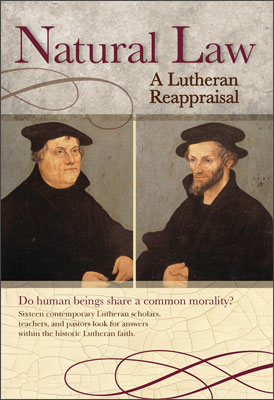Marriage in America isn’t what it used to be. Previous generations regarded marriage as an institution with definite rules by which couples, upon entering, agreed to abide. Today’s generation, riding on the wave of individual autonomy and the exaggerated “right to choose,” has turned marriage into a private relationship defined by the individuals entering it. Instead of acknowledging the inviolable rules of marriage and submitting their wills to marriage as an institution, today’s generation asserts its sovereignty over marriage, imposing its preferred definitions on it.
Despite what some stridently suggest, marriage is not a waxen nose capable of being molded into an individual’s preferred shape. Marriage’s mold is fixed, being established in the eternal will of the almighty God. He declares it a lifelong institution between one man and one woman designed for companionship, procreation, and holiness.
As such, marriage excludes alternative definitions even as it forbids certain behaviors. A man cannot marry a man. A woman cannot marry a woman. An adult cannot marry an infant. A man cannot marry three women and two men. The definition of marriage will not allow it any more than the Trinity will allow an alternative definition than “One God in three Persons.” The same holds true in numerous areas in life. A field goal requires a football to be kicked through the uprights, not thrown. A vegetarian is someone who doesn’t eat any meat, not someone who eats meat occasionally. A dollar is worth 100 pennies, not 97.
Marriage is no different. It doesn’t matter how much two men or one man and three women “love” each other. Marriage isn’t defined by our love; our love is defined by marriage. Marriage is a lifelong covenant between one man and one woman. Its definition simply won’t allow alternatives. This is difficult for today’s generation. Despite what we might wish, we don’t get to define marriage. When we enter it, it defines us.
Within marriage, spouses must abide by its rules. The husband is the head; the wife cannot claim that position. The wife is the body; the husband cannot assume her position. A wife who takes her husband’s headship violates the rules of marriage and invites conflict. A husband who shirks his headship responsibilities violates the rules and invites problems. We can no more violate God’s eternal decrees regarding marriage without negative consequences that we can violate His decree on gravity without repercussions.
Scripture speaks clearly on God’s design for marriage in Ephesians 5, Colossians 3, and 1 Peter 3. These passages elucidate God’s rules for marriage; they’re well worth our attention. Submitting to the rules of marriage will require self-denial and self-sacrifice, but, contrary to what this generation believes, fulfillment and joy in marriage (and life) come not through self-indulgence, but through self-denial and service. It is in losing ourselves that we find lasting joy.
It’s no wonder Jesus, offering freedom, begins by saying, “If you abide in my word, you are truly my disciples.” Then (after obedience to His word), he says, “you will know the truth, and the truth will set you free” (John 8:31–32). Freedom and joy are not found in the absence of rules, nor are they found under our preferred rules. Our hearts are corrupt and will inevitably establish sin-soaked rules to indulge our iniquitous desires, which will only end in slavery to sin. Freedom and joy in marriage (and life) are found in God’s good order.
Is it any wonder, then, that the rite of Christian marriage, after defining marriage and its rules, asks if we will abide by them? And isn’t it appropriate that we answer, “I will”?
Pastor Jonathan Conner of Zion Lutheran Church in Manning, Iowa, is a former board member for the Hausvater Project.




